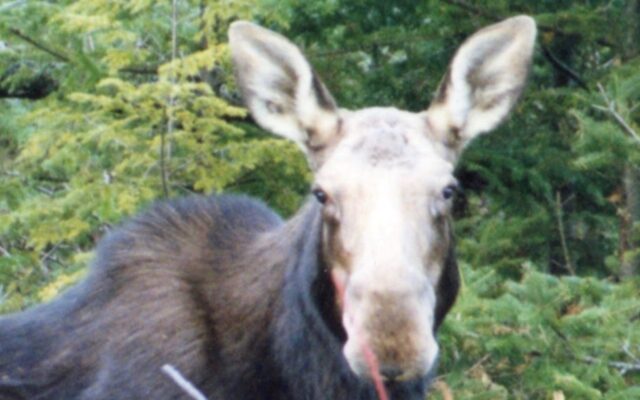
Thoreau-Wabanaki Festival celebrates ties to native ways, moose
GREENVILLE — Native ways and the mystique of the moose were made universally famous in the writings of naturalist writer Henry David Thoreau, especially in his seminal book “The Maine Woods”. From Wednesday to Friday, July 19-21, the 17th annual Thoreau-Wabanaki Festival sheds light on his life-long fascination with the Wabanaki Native-American ways in the North Woods and the magic of the moose in popular culture, then and now.
Programs all begin at 6:30 p.m. each evening in Crafts Community Hall at the Moosehead Cultural Heritage Center, 6 Lakeview Street in downtown Greenville. For details and updates, see Moosehead’s Natural Resource Education Center’s website at www.nrecmoosehead.org. General admission, $5 suggested donation. Questions and answers follow each program.
On Wednesday Chris Sockalexis, Penobscot Nation Tribal Historic Preservation officer, opens the festival with oral legends, archeological history, and a Penobscot creation story about the giant moose that is turned into Mt. Kineo on Moosehead Lake in Wabanaki Ways of the Maine Woods. A lead singer of the RezDogs, an intertribal drum group based out of Indian Island in Old Town, he closes this first night with a demonstration of traditional Penobscot drumming and songs. Most recently, Sockalexis has been conducting archaeological research near Katahdin Woods & Waters.
One of Thoreau’s dying words was moose. The same fascination with moose that caught Thoreau’s attention continues today. On Thursday evening, come learn all about Maine’s most sought after forest giant with Lee Kantar, moose expert with the Maine Department of Inland Fisheries & Wildlife. Internationally recognized for his long-term study of Maine’s moose, some of which took place in the Moosehead region, Kantar discusses the great animal’s life cycle, the health of current populations, and why Maine continues to have the highest numbers of moose outside of Alaska.
Thoreau could not have survived in the wild without his Penobscot guides, but he brought his unique experience of native ways to the world at large. On Friday evening, come hear how going solo in the wilderness is a life-changer, with a panel of outdoor experts, in a “Guide to Solo Wilderness Travel” by Alexandra Conover Bennett, Wendy Weiger, and Aislinn Sarnacki. Each in their own way tells about their extraordinary experiences, risks and rewards, and how they navigate safely in Maine’s rugged woods and waters. Bennett, uniquely qualified in many aspects of surviving remote territory, has spent her entire adult life in the backcountry. Similar to Thoreau, Weiger left the halls of academe to live off-grid where she found spiritual solace and life affirming connections in the north woods. Sarnacki, a popular outdoor writer with the Bangor Daily News, talks about why going solo isn’t for everyone but why she prefers going it alone.
The Thoreau-Wabanaki Festival promotes the understanding, appreciation, and stewardship of Maine’s unique cultural heritage and natural resources. It is made possible in partnership by Moosehead’s Natural Resource Education Center and the Penobscot Nation Cultural & Historic Preservation Department, founder Maine Woods Forever, the Moosehead Historical Society, and the Maine Department of Inland Fisheries & Wildlife.
Two of Thoreau’s three trips into the North Woods with Penobscot guides were launched from Moosehead Lake.